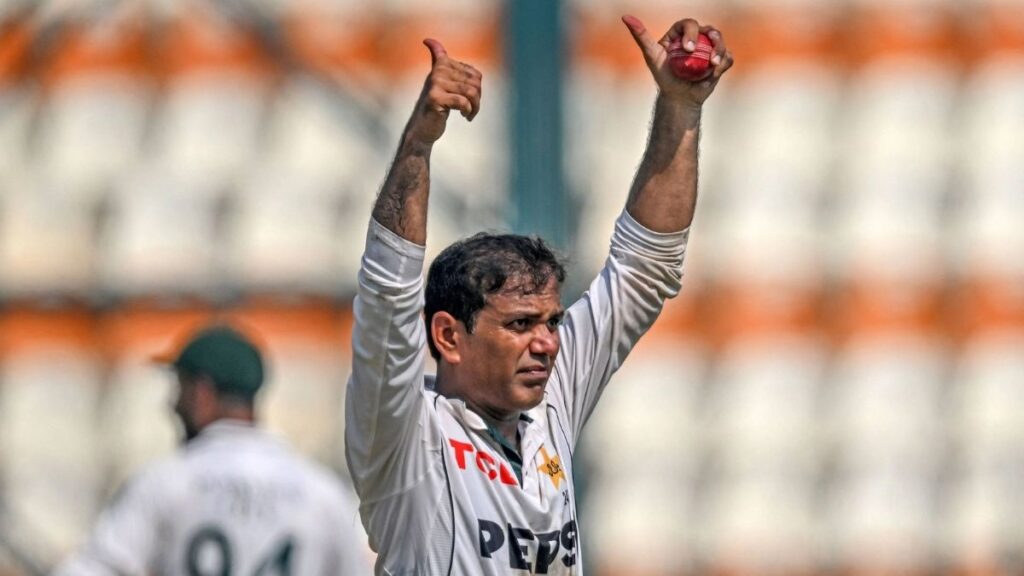DUBAI (Kashmir English): Pakistan and India’s re-encounter in the Asia Cup Super Fours stage was bound to be a gripping match after what happened in their earlier encounter. This time, it was Haris Rauf who hogged the limelight for his conduct during the match.
Haris, who was absent in the previous encounter between the two nations, was full of life all through the match. Yet, it was what he did on the boundary line that attracted the world’s attention.
Fielding close to the stands in India’s innings, Haris Rauf reacted to Indian fans’ jeering by holding up a “6-0” hand gesture and then pretending to watch a plane crash.
The metaphor was unmistakable, an open reference to the Pakistan Air Force’s alleged victory in the “Marka-e-Haq” aerial duel, where six Indian fighter aircraft, including French-origin Rafales, were allegedly shot down during retaliatory sorties under “Operation Bunyan-um-Marsoos.
The incident went viral in a flash. Pakistani fans admired Rauf’s courage, presenting it as a fiery expression of national pride, whereas Indian fans responded with anger, denouncing the action as provocative.
Haris Rauf never disappoints, specially with 6-0. pic.twitter.com/vsfKKt1SPZ
— Ihtisham Ul Haq (@iihtishamm) September 21, 2025
The two differing responses once again highlighted how the Indo-Pak rivalry amplifies every aspect, whether it is a dropped catch, a shrug, or, in this instance, a gesture.
Defence Minister Khawaja Asif soon jumped into the controversy in support of the fast bowler. In a social media post, Asif announced that “India will never forget PAF’s 6-0 victory” in Marka-e-Haq, perhaps encapsulating Rauf’s action as something greater than a piece of cricket theatre.
The 6-0 gesture was not the first attempt by Haris Rauf to psycho his opponents. Earlier in the game, the pacer had a heated argument with Abhishek Sharma, which needed intervention from the umpire.
This latest exchange of words between the two sides follows along on the political undertones that have dominated this Asia Cup. Players were at arm’s length as they walked off without handshakes.
For Pakistan, the defeat on the field was painful, but off it, Haris Rauf’s action saw the headlines shared as much by symbolism as they were by scorecards. As always, the Indo-Pak battle demonstrated that nothing in this rivalry is ever mundane; each run, each glance, and every move conveys the burden of history.



